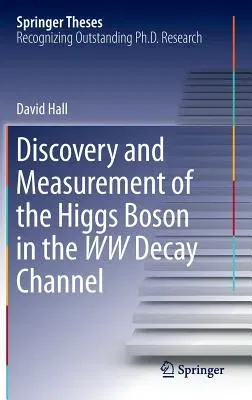David Hall
(Author)Discovery and Measurement of the Higgs Boson in the WW Decay Channel (2015)Hardcover - 2015, 25 June 2015

Qty
1
Turbo
Ships in 2 - 3 days
In Stock
Free Delivery
Cash on Delivery
15 Days
Free Returns
Secure Checkout

Part of Series
Springer Theses
Print Length
160 pages
Language
English
Publisher
Springer
Date Published
25 Jun 2015
ISBN-10
3319199889
ISBN-13
9783319199887
Description
Product Details
Author:
Book Edition:
2015
Book Format:
Hardcover
Country of Origin:
NL
Date Published:
25 June 2015
Dimensions:
23.39 x
15.6 x
1.12 cm
ISBN-10:
3319199889
ISBN-13:
9783319199887
Language:
English
Location:
Cham
Pages:
160
Publisher:
Series:
Weight:
430.91 gm